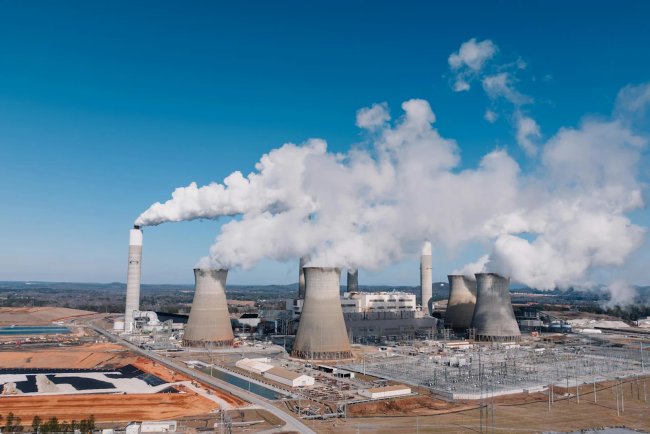Quinbrook Invests £100M In UK’s Clean Refuelling Hubs
Quinbrook invests £100M in Aegis Energy’s clean multi-energy refuelling hubs to support UK’s transport decarbonization.

Quinbrook Infrastructure Partners has agreed to a further investment commitment of £100 million with Aegis Energy, an investment in developing the UK's first clean, multi-energy refuelling hubs for commercial vehicles. The project is ambitious, designed to fill a significant gap in the nation's transport infrastructure, as it is intended to support the transition to low-carbon fuel alternatives in a sector that constitutes the single largest share of UK emissions.
The network of refuelling hubs, designed, will provide high-speed electric charging in addition to the more advanced fuel options like hydrogen, bio-compressed natural gas (bio-CNG), and hydrotreated vegetable oil (HVO). Each hub will serve more than 40 heavy goods vehicles (HGVs) and 25 vans at a time, making for efficient refuelling and supporting fleet operators transitioning to sustainable energy sources. Facilities will also be designed with safe parking and driver-friendly amenities to improve convenience and usability.
These hubs consist of five locations, which were first rolled out strategically in Sheffield, Immingham, Warrington, Corby, and Towcester. Planned to be complete by 2027, each of these locations is expected to eliminate 71,500 tonnes per year in carbon emissions, equaling 14,300 tonnes per hub. As part of this larger ambition from Aegis Energy, up to 30 of these hubs should be established before 2030, significantly fast-tracking the decarbonization efforts of the transport sector in the UK.
Commenting on the initiative, Christopher Thorneycroft-Smith, Co-founder at Aegis Energy, said the flexibility of the clean energy options available will be pivotal. "Transition will take time and play out differently for each fleet, but providing public hubs with multiple clean energy options helps support operators to choose how they want to make the transition," he said.
The move is in line with the increasing regulatory pressures on the transport sector. The UK government has promised to end the sales of non-zero-emission vehicles between 2035 and 2040, which requires a strong infrastructure to support this transition. Aegis Energy's innovative hubs are designed to meet this demand, allowing transport operators to decarbonize efficiently while reducing operational complexities.
Quinbrook's Managing Director, Keith Gains, made it clear this investment was important toward the future development of sustainable transportation. "The support of companies like Aegis creates huge opportunity to fill a gap in required infrastructure to service transport fleets clean energy," he said. For Quinbrook, this would be its very first foray into sustainable transportation, adding its first venture for net-zero developments across the UK, US, and Australia in its portfolio.
This will, besides environmental benefits, improve the access and scalability of clean energy sources for commercial fleets. High-speed electric charging infrastructure at hubs will support the increasing adoption of electric vehicles among fleet operators, addressing one of the key barriers against the widespread adoption of electric vehicles: access to efficient ways of charging. The inclusion of alternative fuels like hydrogen and bio-CNG ensures that fleets with diverse needs can transition at their own pace without compromising sustainability goals.
The hubs are designed to cater to the evolving requirements of the transport sector while promoting economic sustainability. With features that include multi-fuel refuelling, driver amenities, and secure parking facilities, Aegis Energy’s hubs aim to provide a seamless experience for commercial operators, further encouraging adoption of cleaner fuel technologies.
A long-term vision shared with the broader UK climate goals is that Aegis Energy aims to establish a nationwide, scalable network of clean energy refuelling hubs to position itself at the forefront of the low-carbon transition of transport infrastructure. Transport is still the largest emitter in the country, representing 27% of total greenhouse gas emissions. To reach net-zero targets in 2050, reducing the emissions from this sector will be critical.
This initiative may also inspire similar projects around the world. With Quinbrook's long experience in renewable energy investments and Aegis Energy's innovative approach to sustainable transport, the partnership is a replicable model for addressing the infrastructure needs of a rapidly evolving energy landscape.
In a related development, Quinbrook recently closed $3 billion for its Net Zero Power Fund, which focuses on renewable energy projects across various regions. The investment in Aegis Energy reflects Quinbrook's commitment to broadening its impact by exploring new opportunities in sustainable transport, a sector with immense potential for emissions reductions.
At such a pace in decarbonizing, Aegis Energy hubs seem to be at the core of such puzzles in the UK. It combines clean energy solutions within an all-encompassing infrastructure and facilitates a more streamlined process towards regulation compliance, besides ushering a cleaner and sustainable transport system. It constitutes a big leap towards reducing the carbon footprint of a sector deemed by many climate experts as one of the hardest ones to decarbonise, as the project is set to reach 30 hubs by the end of the decade.
This landmark investment signals a watershed moment for sustainable transport in the UK and offers a pragmatic and scalable route for fleet operators to cut their carbon footprint. Being the first of its kind, Aegis Energy's multi-energy hubs could change the future of commercial refueling as a standard low-carbon infrastructure benchmark across the globe.
What's Your Reaction?

















